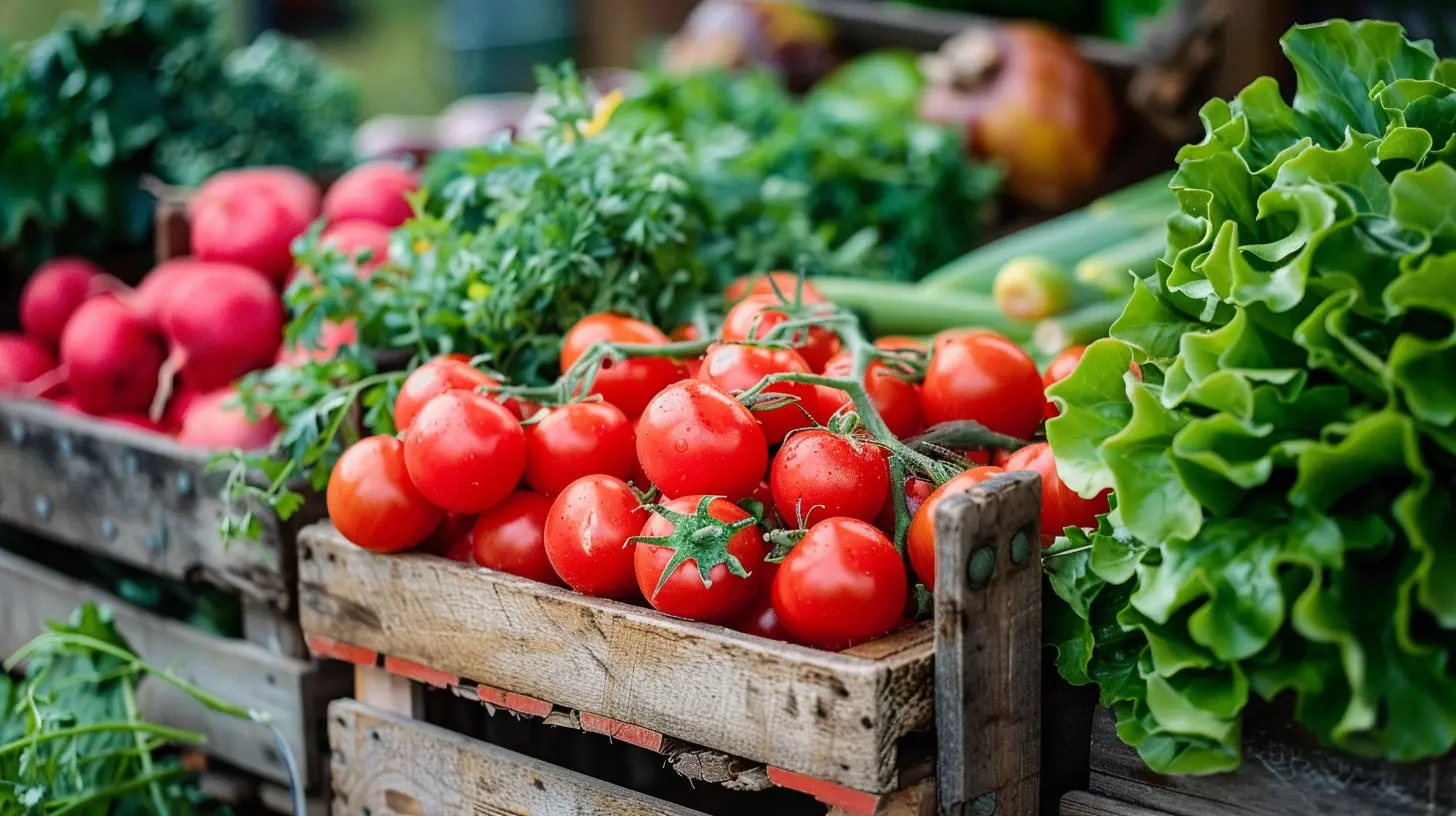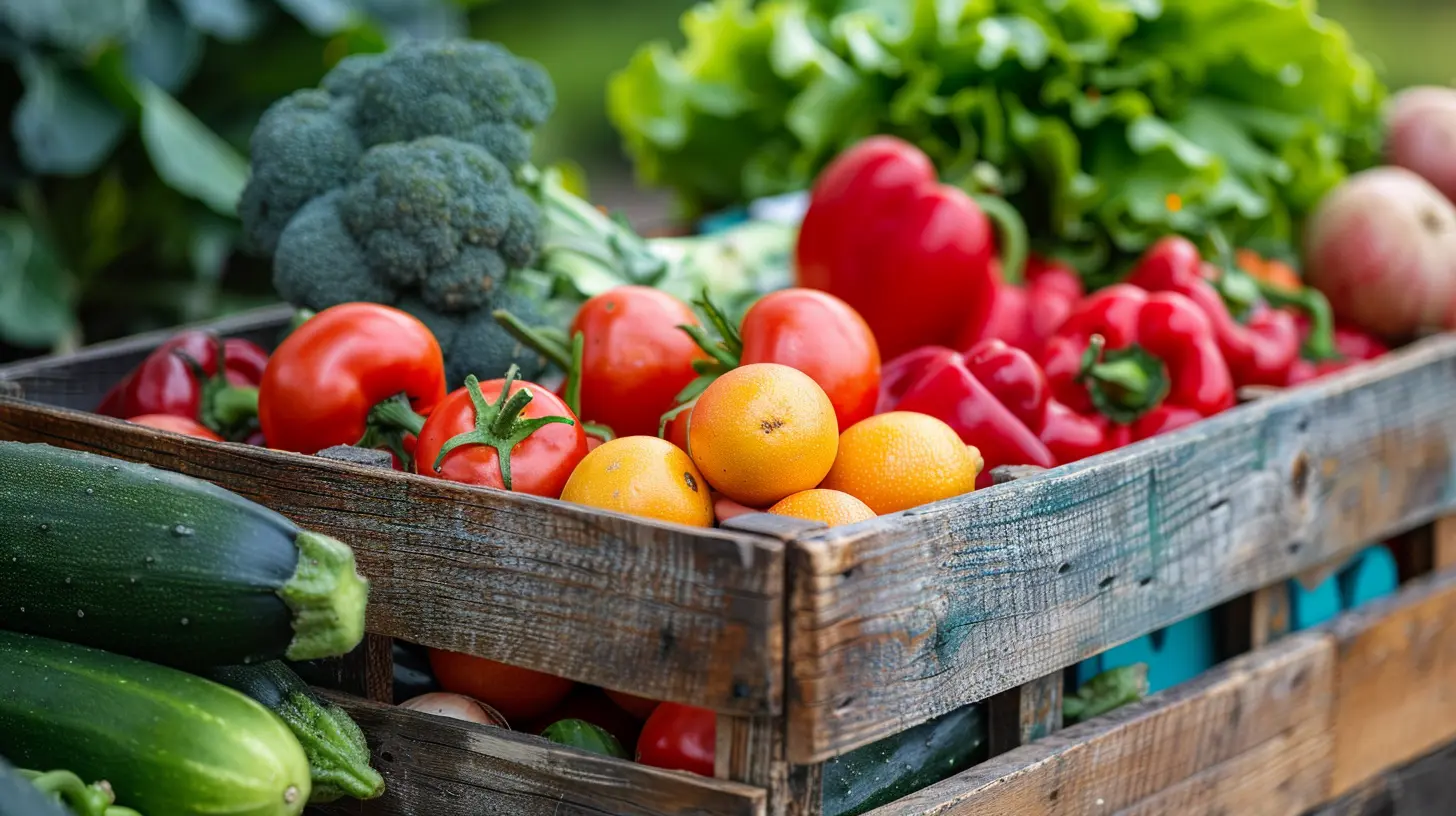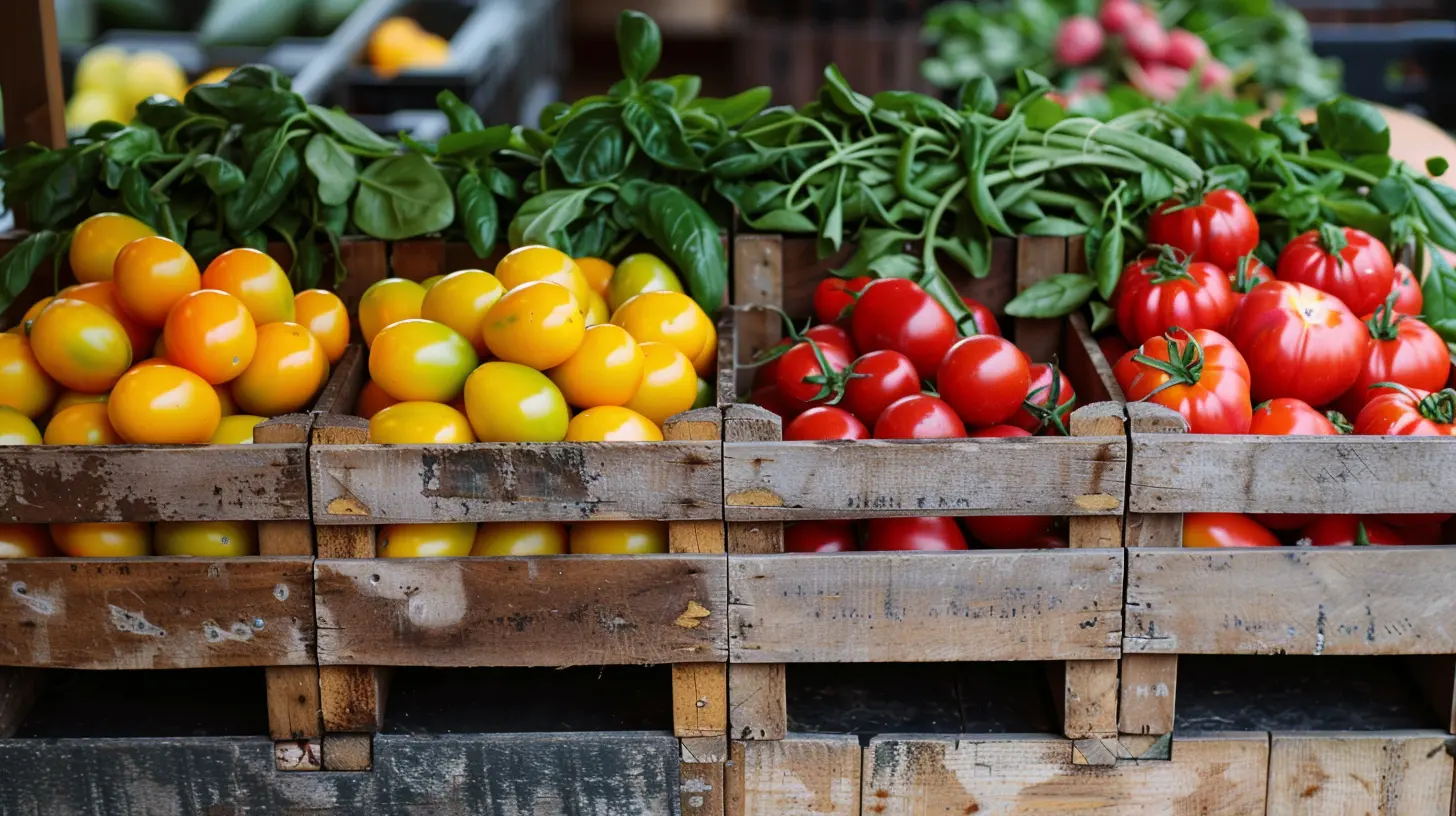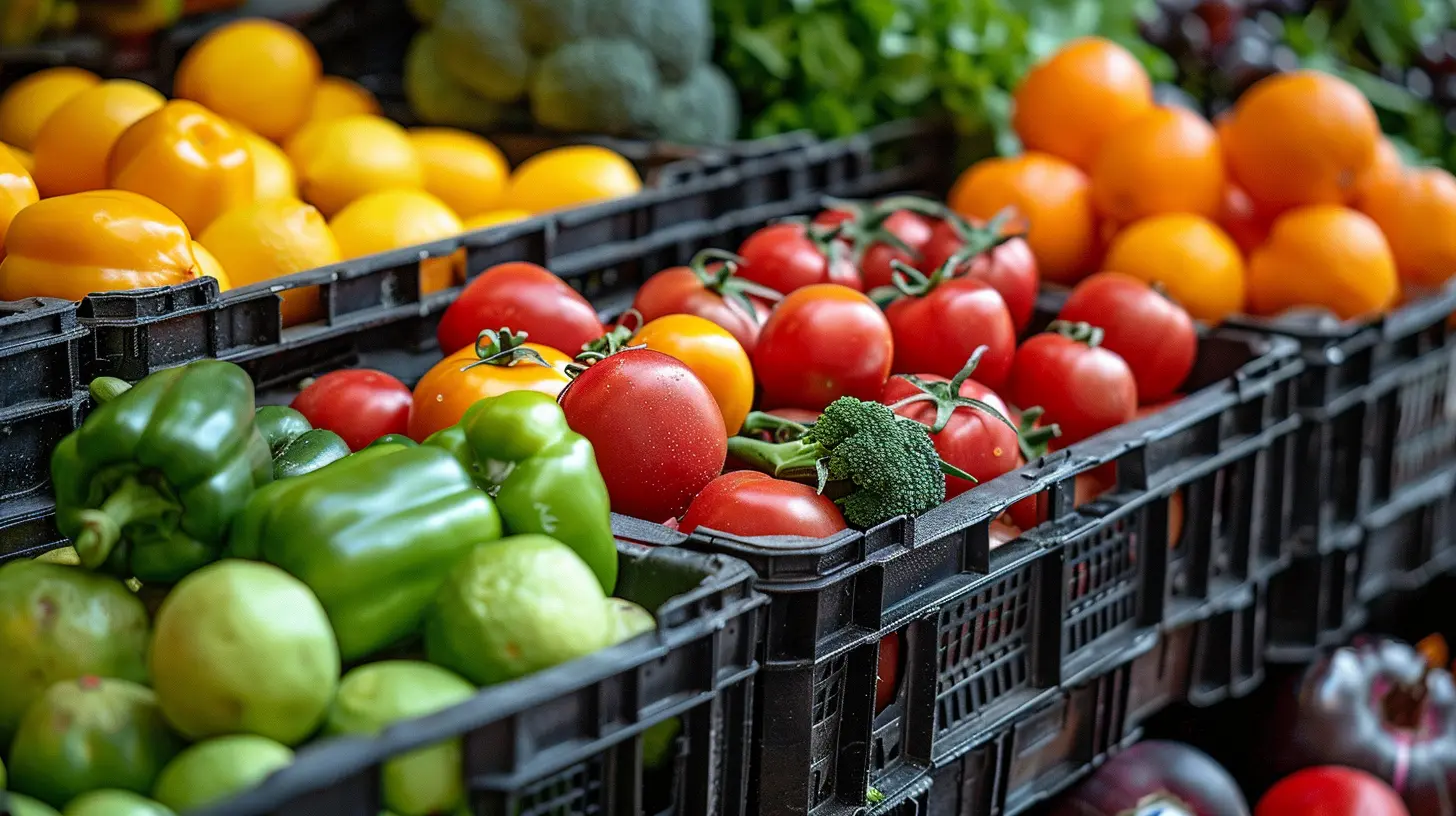How to Store Your Organic Produce to Make It Last Longer
13 June 2025
Eating organic is a great way to ensure you're consuming fewer chemicals and more nutrients. But there's a downside—organic fruits and veggies tend to spoil faster than their conventional counterparts. Why? They lack the preservatives and wax coatings that extend shelf life.
So, how do you keep your organic produce fresh for longer? It all comes down to proper storage. Let’s dive into the best ways to store your organic goodies and get the most out of them! 
1. General Storage Tips for Organic Produce
Before we get into specifics, here are some golden rules:- Keep moisture under control – Too much moisture can lead to mold, while too little can cause wilting.
- Store fruits and vegetables separately – Some fruits release ethylene gas, which speeds up ripening (and spoilage) in nearby veggies.
- Know what needs refrigeration – Not everything belongs in the fridge!
- Use breathable storage – Plastic bags can trap moisture and cause rot. Opt for paper bags, cloth bags, or perforated containers.
- Wash only before use – Washing produce before storing can introduce extra moisture and encourage spoilage.
Now, let’s look at the best ways to store specific types of organic produce. 
2. How to Store Organic Fruits
Bananas
- Keep bananas at room temperature, away from other fruits.- Want them to last longer? Wrap the stems with plastic wrap to slow ethylene gas release.
- If they ripen too fast, peel and freeze them for smoothies or baking.
Apples
- Store apples in the crisper drawer of the fridge.- Keep them in a perforated bag to maintain moisture.
- Avoid storing near bananas or avocados to prevent overripening.
Berries (Strawberries, Blueberries, Raspberries, Blackberries)
- Berries are delicate—handle them with care.- Store unwashed berries in a breathable container lined with a paper towel.
- Wash them just before eating to avoid excess moisture buildup.
Citrus Fruits (Oranges, Lemons, Limes, Grapefruits)
- Store citrus at room temperature if you’ll eat them within a few days.- For longer storage, keep them in the fridge’s crisper drawer.
- Avoid plastic bags—citrus needs air circulation.
Avocados
- Leave unripe avocados on the counter.- Once ripe, move them to the fridge to slow ripening.
- If you’ve cut an avocado, store it with the pit and squeeze lemon juice over the flesh to prevent browning.

3. How to Store Organic Vegetables
Leafy Greens (Spinach, Kale, Lettuce, Swiss Chard)
- Remove any wilted leaves before storing.- Wrap greens loosely in a damp paper towel and place them in a container or perforated bag.
- Store in the fridge’s crisper drawer for best results.
Carrots, Beets, and Radishes
- Cut off the greens (they draw moisture from the root).- Store in a sealed container with a bit of moisture to prevent dehydration.
- Carrots can also be stored submerged in water for extra crispness.
Tomatoes
- Never refrigerate tomatoes! Cold temperatures ruin their texture and flavor.- Store them stem-side down at room temperature.
- If they begin softening, make a quick sauce or salsa instead of letting them go bad.
Potatoes, Onions, and Garlic
- Keep these in a cool, dark place (not the fridge).- Store potatoes in a breathable bag away from onions (onions release gases that cause potatoes to sprout).
- Garlic lasts longest in a dry, well-ventilated area.
Cucumbers
- Cucumbers tend to get mushy in the fridge.- Store them in a cool spot on the counter for short-term freshness.
- If refrigerating, keep them in the crisper drawer, wrapped in a dry paper towel.

4. Extra Storage Hacks to Make Organic Produce Last Longer
Use Vinegar Wash for Berries
A vinegar rinse (1 part vinegar to 3 parts water) helps kill bacteria and mold spores. Just rinse thoroughly and dry before storing.Freeze for Long-Term Use
Many fruits and veggies can be frozen! Chop and freeze ripe bananas, berries, spinach, or bell peppers to use in smoothies or cooking.Revive Wilted Greens
Soak limp greens in a bowl of cold water for 10-15 minutes to bring them back to life.Store Herbs Like Flowers
Keep fresh herbs (like cilantro and parsley) in a jar with water, just like a bouquet. Cover with a plastic bag in the fridge to extend freshness.5. Final Thoughts
Organic produce may spoil faster, but the right storage methods can keep them fresh and delicious for longer. A little effort in how you store your fruits and veggies can reduce food waste, save money, and ensure you get the best flavor and nutrition from your organic produce.So, next time you bring home a haul of organic goodies, remember these tips—your fridge (and taste buds) will thank you!
all images in this post were generated using AI tools
Category:
Organic FoodsAuthor:

Laurie Barlow
Discussion
rate this article
2 comments
Orionis McQuillan
Great tips! I always struggle with this—looking forward to trying your suggestions for my produce.
June 17, 2025 at 3:38 PM

Laurie Barlow
Thank you! I hope the tips help you keep your produce fresh longer! Happy storing!
Eliza Reilly
Stop letting your organic produce wilt away! Treat it like the royalty it is—proper storage is the key to keeping it fresh and fabulous!
June 14, 2025 at 4:34 PM

Laurie Barlow
Absolutely! Proper storage is essential for preserving the freshness and quality of organic produce. Treating it with care ensures it stays fabulous for longer!


